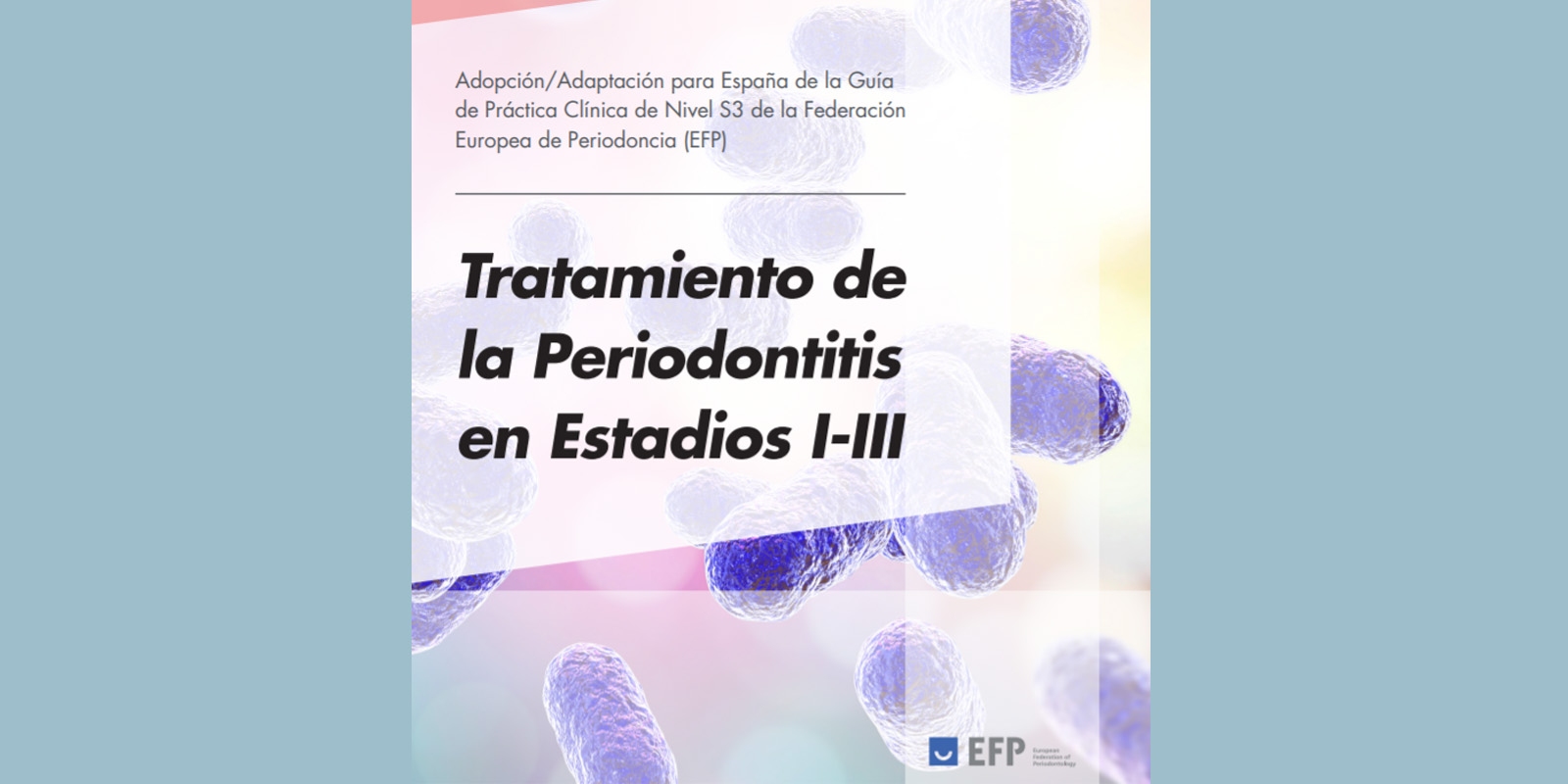DENTAID EXPERTISE
News for dentistry professionals
DENTAL IMPLANT MAINTENANCE

Treatment with dental implants is successful more than 90% of the time, at present, but for this success to be long-lasting, both professionals and patients alike must take part in properly maintaining the implants.
Mar Romero Gómez. Head of the Periodontology Commission at the Professional Dental Hygienists Association of Madrid.
The late failure of implants—after loading the fixture—is usually associated with peri-implantitis and/or functional overload. Hygienists can help prevent this failure by monitoring patients and providing specific health education at the dental clinic.
Unlike natural teeth, dental implants do not have a periodontal ligament and are in direct contact with the alveolar bone, so they undergo an alteration in the peri-implant structure involving their collagen and elastic fibres, vascularisation and the gingival sulcus. All of this facilitates colonisation by periodontopathogenic bacteria, which do not encounter excessive resistance.
These morphological characteristics of the dental implant make it necessary to reduce the concentration of biofilm on the peri-implant soft tissues as much as possible, which would prevent potential disease. In addition, the prosthesis may suffer breakage, damage and/or loosening of its internal components which occur naturally over time or from the considerable masticatory pressure to which they are subjected.
Therefore, in order to extend the average life of a dental implant, we must monitor patients to prevent peri-implant disease and to detect and resolve any prosthetic defects before the consequences become irreversible.
There is currently no specific maintenance protocol because of the multiplicity of factors that affect implants, although carrying out professional maintenance of implants and prostheses is advisable at least once a year, regardless of the retention system and the number of fixtures.
MAINTENANCE OF DENTAL IMPLANTS
• Disassemble the prosthesis, if possible, and clean it and all of its components thoroughly. This is done by using specific instruments and materials, as well as state-of-the-art equipment, available on the market, all of which aim to produce the minimum alteration to the surface of the implant and its abutments.
• Analyse plaque index, bleeding, and bone loss any greater than the established limits and probing depth considered pathological.
• Check all other oral structures and take a control x-ray.
At each check-up, we must attempt to instil healthy habits in patients and provide instructions, motivation and control of specific oral hygiene techniques for the fixtures according to the treatment involved and the patient’s abilities.
As Hippocrates said, “If someone wishes for good health, one must first ask oneself if he is ready to do away with the reasons for his illness.” Patients must therefore be willing to collaborate, and they must understand their treatment.
CONCLUSION
For the maintenance of implants:
* Patients must follow their specialist’s recommendations and get check-ups as advised.
* The specialist must establish appointments for check-ups and treatment to prevent disease and/or misalignment of the dental implant-supported prostheses.
About the Author
Responsable de la Comisión de Periodoncia del Colegio Profesional de Higienistas Dentales de Madrid
Bibliography
- Chen D. Dental implants: maintenance, care and treatment of peri-implant infection. Aust Dent J 2003; 48 (4): 212-220.
- Protocolos post-tratamiento recomendados por el Colegio Oficial de Odontólogos y Estomatólogos de la I Región y por el Máster de Implantologías, Periodoncia y Cirugía Bucal de la Institución Mississippi de Madrid.
- http://www.sepa.es/web_update/wp-content/uploads/2015/09/Dossier-SEPA-SEC-08.pdf.
RELATED ARTICLES

17 Feb 2022
EuroPerio Series: professional discussions and scientific exchange
To keep the global perio community up to date with the latest research findings as well as give a taster of what is to come at EuroPerio10, the…

21 Jan 2022
Xerostomia in COVID-19 positive patients: clinical considerations
Severe Acute Respiratory Syndrome Coronavirus 2 (SARS-CoV-2) the cause of the pandemic known as COVID-19, affects different organs and systems (lungs,…

20 Jan 2022
A guide adapted to Spain to optimise the approach to periodontitis
There are currently numerous clinical practice guidelines to direct the treatment of many systemic diseases (such as diabetes, depression,…
Sign up for the DENTAID Expertise newsletter
Sign up for the newsletter